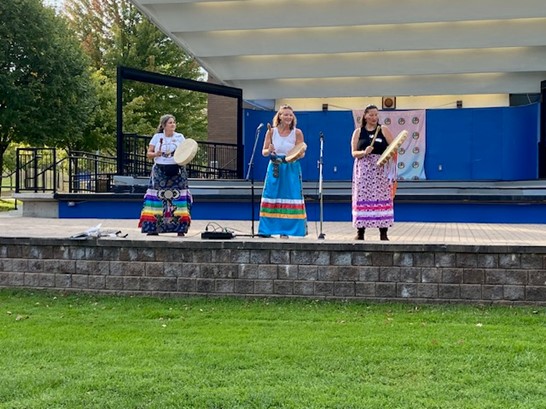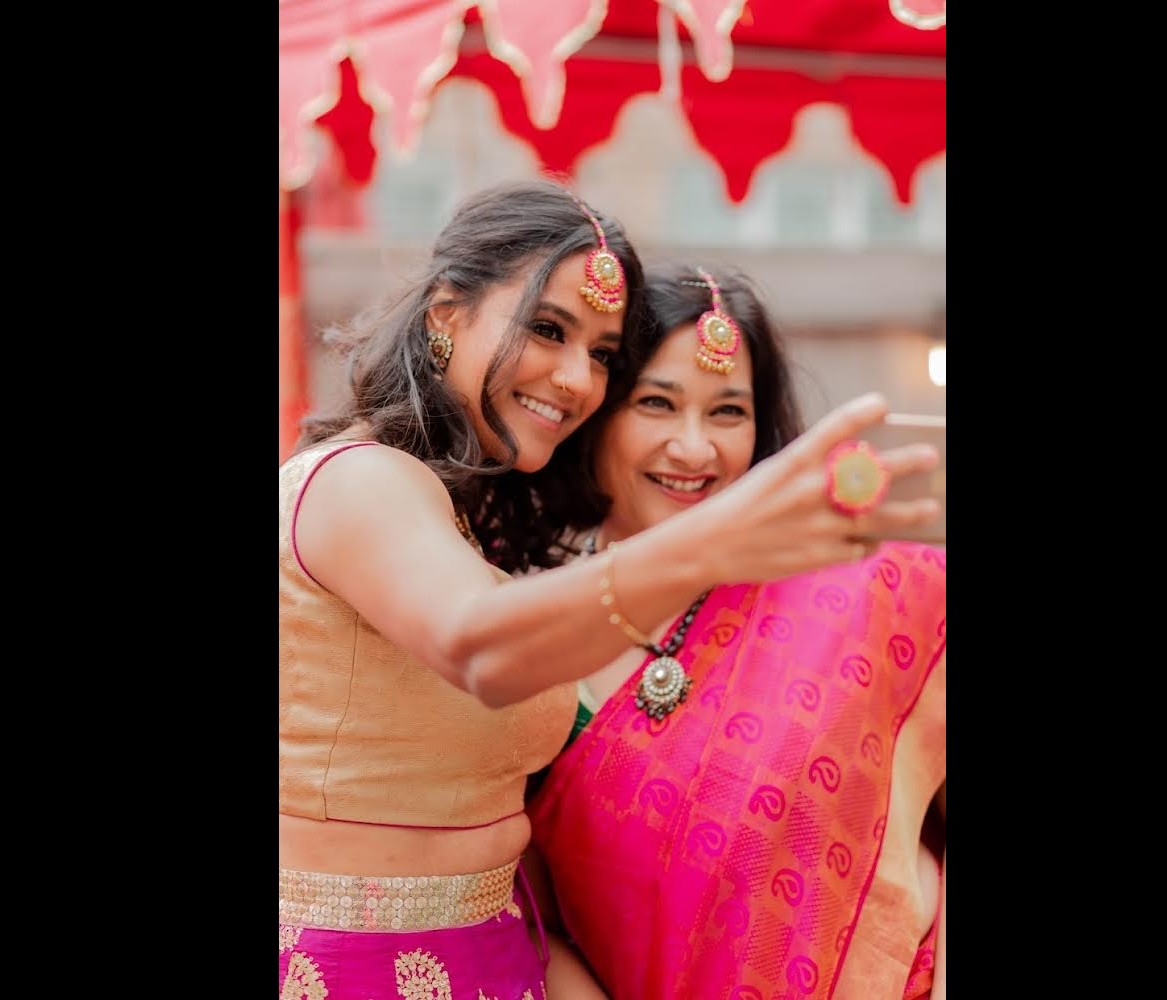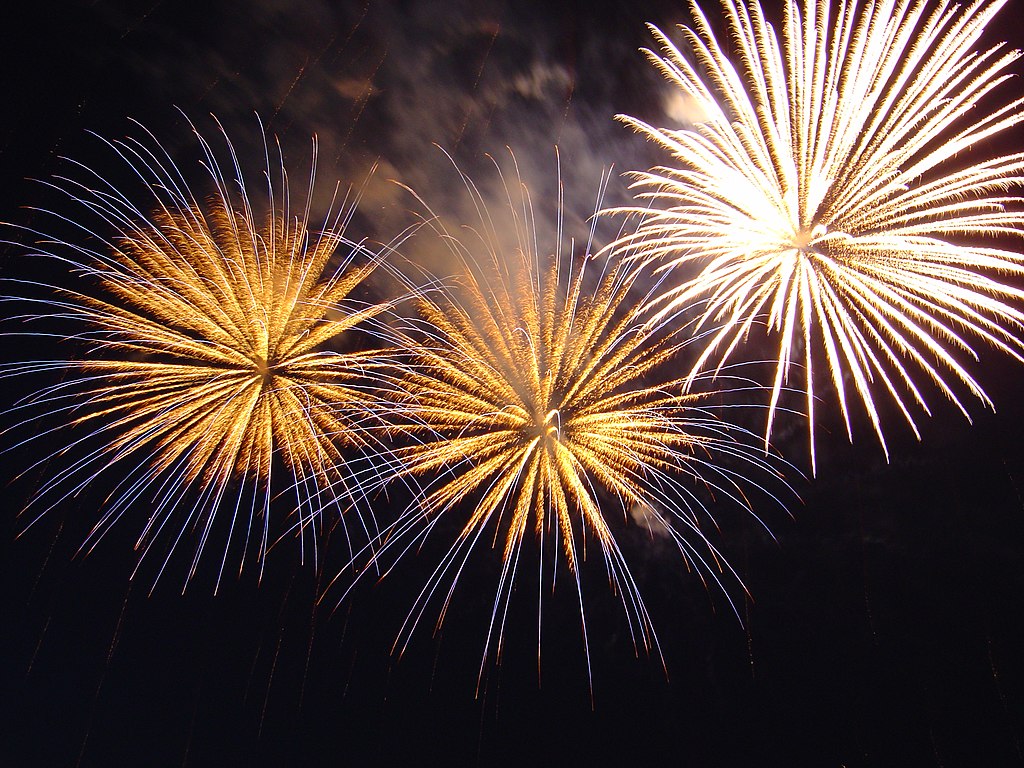By Emily R. Zarevich, Local Journalism Initiative Reporter
Music. The great equalizer. A common language exchanged and understood. We sing into the air and open spaces around us, knowing that we’ll always hear something back. The avid response of an audience, or our own voices boomeranging back. That is what an echo is. A welcome, anticipated response from someone who listens and appreciates.
It’s not a coincidence that on September 20, 2024, the Echoes of Reconciliation, presented by Halton Equity Diversity Roundtable (HEDR) and Grandmother’s Voice, took place outdoors at the Burlington Music Centre. This way, the music being played could smoothly drift to reach the ears of many. The passersby in their cars on their way to the Burlington downtown area could hear it. The people reading at the Burlington Central Library could hear it. Anyone in the area with the keenness and willingness to really consider Burlington’s place in a long history of Indigenous people and settlers could hear it.
The event took place from 4:30 p.m. to 8:00 p.m., three and a half hours to immerse oneself in culture and new experiences. Singers and performers travelled in from afar to perform for an assembled Burlington-based audience. An incredible trio made up of Jenn Begin, Jody Harbour, and Josephine Lavalley opened with a beautiful and unapologetically booming and thumping set of songs, including “The Strong Woman’s Song,” which was first composed by Anishinabe kwewag and Zhoganosh kwewagbeing women held in solitary confinement at the Kingston Penitentiary during the 1970s.
“Vocal sounds help us focus on the power of the song, the meaning of the song,” Begin explained to the audience, who were eager to understand more about the composition of the melodies. “It’s meant as medicine for the Earth, for all of our relatives and for all of you.”
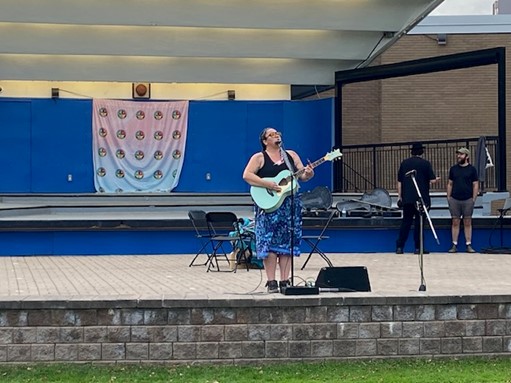
Matt Bergman came on stage next, to entertain the audience with fun and lively covers of classic country and rock hits by Indigenous artists such as Hank Williams and Jimi Hendrix. Lacey Hill treated the crowd to original and heartful songs on her own powder-blue guitar. Next up came Powwow Old Style, traditional Indigenous dances that included storytelling war routines, through which a warrior who has returned home to his community after battle relays his experiences through motions. Mandy Bomberry, Marissa Anderson, Ethan Warner, and Ascension Harjo made up the troupe and invited the audience to dance with them during the round dance or “friendship dance” at the end.
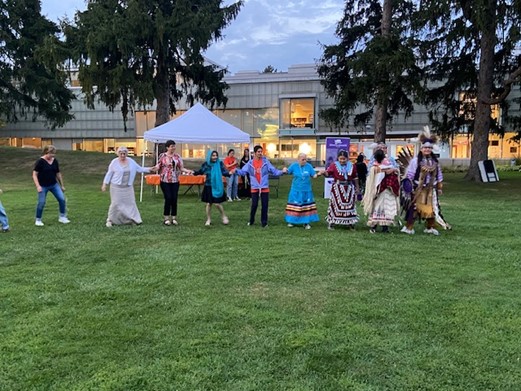
It was an extremely interactive afternoon overall. Visitors had the opportunity to browse a variety of vendors to collect educational material and support local Indigenous entrepreneurs by purchasing goods and signing up for workshops. The vendors included Ancestral Voices Healing Centre; the Downie Wenjack Fund; Positive Health Network; Distress Centre Halton; KreatioNZ; and a modern representation of the Two Row Wampum Treaty. The Two Row Wampum Treaty was a mutual agreement made in 1613 between the Five Nations of the Haudenosaunee and the Dutch government, regarding an area which now makes up the upstate region of New York. Visitors were invited to contribute a tile to add to the treaty being formed on the table, a reflection of the new efforts to establish peace between the factions that share this continent’s land.
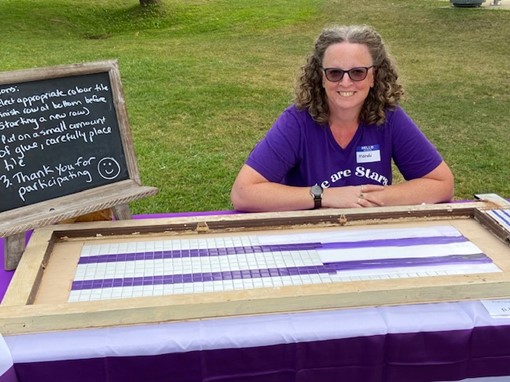
Elegant beaded jewellery could be purchased from Blooming Creations. All natural deodorant could be obtained at the stand run by Josephine Lavalley’s First Nation Fortitude (the current name of the Facebook brand). Grandmother Gail offered smudges, or cleansing rituals, with a swan’s fan, and sold her medicines at her own stand. Visitors could play Jenga together with blocks painted by members of the community, and help sand down sticks to be used to play native drums. Those who registered in advance for the event were also treated to a free meal, a choice between a delectable beef burger, barbecue chicken, or a vegetarian option (a tasty grilled portobello mushroom). No one was left with an empty belly. This was truly a community gathering.
HEDR and Grandmother’s Voice strive to continue their tag-team campaign to educate on core Indigenous values and the intricacies of land acknowledgement through their Circle of Change events. “Through colonization, they separated all people from their spirits. It’s time to connect the people to their hearts,” comments Jody Harbour, who along with being a musician is one of the co-founders of Grandmother’s Voice. More information on how to RVSP for these events can be found here.

